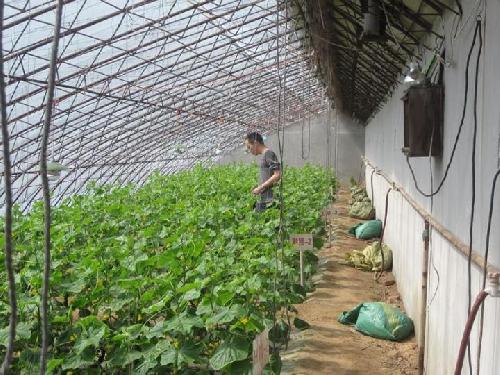Nitrogen is an essential nutrient for plant growth, and nitrogen fertilization and is often used in agriculture in the developing world and in organic process farming in wealthy countries. But organic farmers have to worry about yield also, and that has led to overuse and misuse that has resulted in the accumulation of surplus nitrogen in soil and its eventual migration to soil layers and groundwater.
The authors of a new study in HortScience found that the environmental risks of manure applications in high-input greenhouse environments may outweigh the benefits, and recommend that the role of manures be reexamined. The study reports on a 3-year experiment conducted in greenhouse soil rotationally planted with cucumber or tomato and lettuce with and without manures. Scientists investigated the spatial (vertical) and temporal dynamics of nitrate, extractable organic nitrogen (EON), and total nitrogen in soil, and estimated the leaching-dominated N loss based on N balance in soil.

Results showed that application of manures slowed acidification but accelerated salinization of the fertile greenhouse soil, and did not significantly enhance the aboveground fresh biomass and biomass N in most of the vegetable seasons during the 3-year experiment. The experiments also indicated that high-rate application of manures resulted in high accumulation of not only nonextractable N but also leachable N (including nitrate and EON), consequently intensifying leaching-dominated N loss.
"Our study showed that enhanced accumulation of mobile N induced by excessive manure input could exceed the need of plant uptake but be subject to downward migration and leaching-dominated loss," the authors write.
The researchers recommended that the role of manures in high-input agricultural ecosystems be reexamined to balance the economic benefit and the environmental risks of enhanced nitrogen loss.




Comments